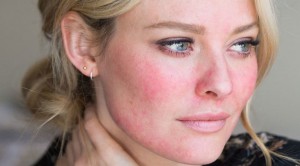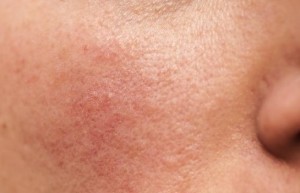Rosacea is a common, chronic, incurable, adult acne-like skin condition that is easily controllable and medically manageable. It commonly affects the central third of the face, especially the nose, and its intensity varies over time. Many people who have rosacea may just assume they have very sensitive skin that blushes or flushes easily.

Rosacea symptoms and signs include redness of the face (easy facial blushing or flushing), tiny red pimples and fine red vascular lines on the facial skin and eye problems, such as swollen red eyelids. Rosacea triggers include alcohol, hot or spicy foods, emotional stress, smoking, and heat.
The exact cause of rosacea is still unknown. The basic process seems to involve dilation of the small blood vessels of the face. The symptoms and signs of rosacea tend to come and go.

Dermatologists are specially trained in the diagnosis of rosacea. Generally, no specific tests are required for the diagnosis of rosacea. There are many treatment choices for rosacea depending on the severity and extent of symptoms. Available medical treatments include antibacterial washes, topical creams, antibiotic pills and lasers.